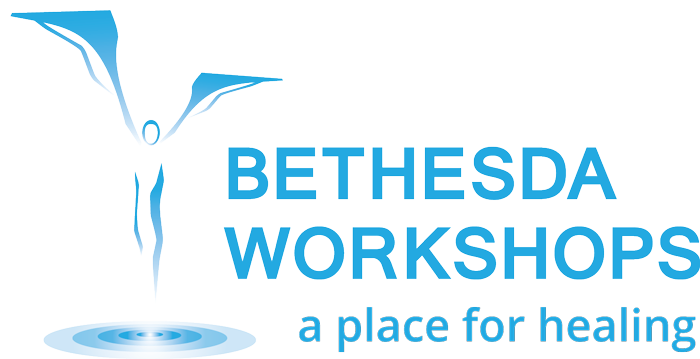Since early in my recovery journey, which started in 1991, I was certain of God’s call to tell my story, and I’ve shared about my experiences as an abandoned child, sexual trauma survivor, and sex and love addict hundreds of times in various media, including on Dateline in 2004. I’ve consistently received grace, support, and affirmation at almost every turn. Someone always expresses gratitude to hear part of his or her own story in my sharing, which counters the feeling, “I thought I was the only one.”
Last year I agreed to contribute my story to a book on addiction that’s being written by two long-term colleagues and friends. My only stipulation was that my story be on-the-record, which I’ve done since 1993 beginning with a major series in The Tennessean. I also asked to include information about Bethesda Workshops, and my author-friends quickly agreed. We all know that addiction thrives in secrecy, and telling the truth openly is the best antidote for shame.
Imagine our shock, then, when the book’s publisher, a major house, insisted that my story be told anonymously. Worse, the editor and legal team required that all the “identifying” details be changed. I’m not talking details like naming my primary perpetrator, identifying where he has worked for decades, and stating that his employer has failed to take action despite repeated complaints and persistent rumors about his unwanted sexual advances. I understand such specifics would risk a libel suit. The “details” in question are generic, like “a dear friend” who came to my aid or “the man next door,” when not even the city, much less the street is named.
Worse, this publishing house said it would require corroboration of my story, such as a written statement from someone who had first-hand knowledge of the events. Sure, as if someone was present when this man sexually abused me, or there’s any doubt I engaged in sexually addictive behaviors.
I’ve been surprised at the depth of my reaction to these ridiculous requirements, which have triggered strong memories of my desperate fears in early recovery: No one would believe me about the abuse, and I would be severely judged for my sexual sins. My adult self with 28 years of healing has found the publisher’s stance insulting, dismissive, and disrespectful, as well as profoundly ignorant about the possibility of recovery from addiction and freedom from shame.
Mostly, I’ve been plain old angry, not just for myself, but also for the others who are sharing their stories. They have chosen anonymity, yet they, also, must corroborate their experiences and change innocuous details.
Distressed, I reached out to a lifelong dear friend who is a now-retired editor of a major esteemed publication. He assured me this publisher’s stance was based in “cowardice,” not reason (or even reasonable journalistic standards). He supported my decision to withdraw my story from this book, which was an easy one to make. In addition to a desire to counter the shame of addiction, it’s a matter of integrity for me. After years of telling the story accurately, my primary perpetrator can’t suddenly become a dentist or accountant. That’s absurd. The perpetrator used his theater background as part of his grooming process, but the skills and experience I gained in speaking and writing from my years in theater are vital to my work today. It’s part of the redemption that what he intended for ill, God has used for good. It’s the rest of the story!
Thankfully, my writer friends have been mortified by the publisher’s actions, extremely supportive of my feelings and decision, and concerned about the others who shared their stories. When I relayed my editor-friend’s thoughts to the authors, one expanded on his comments about cowardice and framed the issue as a struggle between fear and courage. “My experience is that the battle between that kind of fear and courage is everyone’s battle. I pray for us to live in freedom from those tragic constraints,” he wrote.
Indeed. Fear and courage come in all shapes, sizes, and situations. In many ways, these are the choices of recovery, of healing, of living.
Recovery isn’t for cowards. Do you have the courage to stay on this journey? To dig deep and deal with whatever you need to face? Are you afraid of being known? Do you cowardly hide your true self, even the good parts, and keep others at arm’s length? Are you courageous enough to say, “I’m sorry”? To extend trust to someone who has shown demonstrated behavior change over time? Are you afraid of others’ opinions of you? Of making a stir or causing a scene if necessary? Can you find the courage to forgive those who have harmed you?
Are you courageous in confronting prejudice, injustice, misogyny, racism, discrimination, clergy sexual abuse, and so many other clear evils? To take responsibility for your actions? To call people into accountability? To maintain your boundaries when everything in you wants to give in? Do you fear pain or loneliness so much that you’ll choose a momentary false solution? Do you have the courage to show compassion for people’s failures or heartaches, including your own?
These are typical examples; your choices of fear and courage are individual. What is it that you most fear? (That I fear?) Where do we need to lean into courage? I admit that I’m plagued by fear at some point nearly every day, and I suspect I’m not alone.
The good news is that if invited, God is with you in every fear. Ask for courage in the moment and keep asking. God will supply courage when you can’t muster it, and God will be there in the fear that’s likely to come after exercising it.
Marnie C. Ferree
